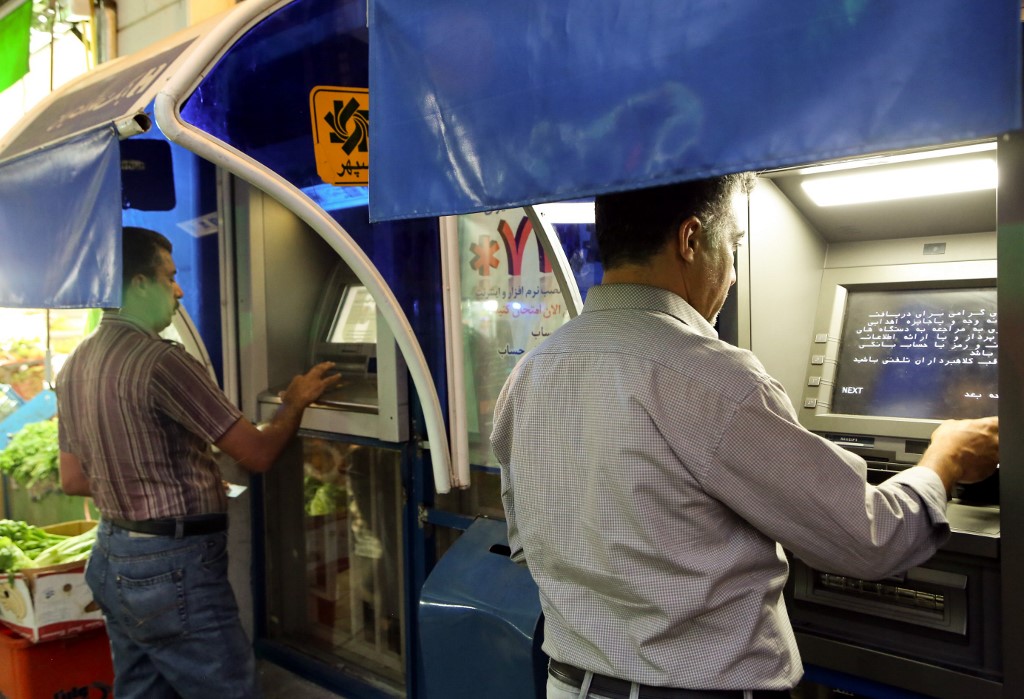The Trump administration has imposed sweeping sanctions on Iran’s banking sector, taking a major new step to cripple the arch-rival’s already struggling economy in the weeks ahead of US elections.
The Treasury Department said on Thursday it was designating 18 major Iranian banks, a move that could largely cut off the nation of 80 million people from the world’s financial system just as it tries to cope with the Middle East’s worst Covid-19 outbreak.
The United States defied concerns from European allies that the sanctions could cause needless suffering and insisted it was making exemptions for humanitarian trade.
“Our sanctions are directed at the regime and its corrupt officials that have used the wealth of the Iranian people to fuel a radical, revolutionary cause that has brought untold suffering across the Middle East and beyond,” Secretary of State Mike Pompeo said.
He said the Iranian leadership was to blame for devoting funds to the military when it has health needs.
ALSO SEE: Iran dumps dollar for yuan
“Our maximum economic pressure campaign will continue until Iran is willing to conclude a comprehensive negotiation that addresses the regime’s malign behavior,” Pompeo said.
The Treasury Department did not list specific accusations against most of the banks, instead declaring broadly that the entire Iranian financial sector may be used to support the government’s contested weapons programs and regional efforts.
Iranian Foreign Minister Mohammad Javad Zarif accused the United States of trying to “blow up our remaining channels to pay for food and medicine” during the pandemic.
“Iranians WILL survive this latest of cruelties. But conspiring to starve a population is a crime against humanity,” Zarif wrote on Twitter.
“Culprits & enablers – who block our money – WILL face justice.”
‘Sadism’?
The Treasury Department said it was exempting transactions in humanitarian goods such as food and medicine.
But European diplomats have argued that US sanctions nonetheless have dire consequences, with few institutions willing to take the risks of legal action in the world’s largest economy.
Barbara Slavin, director of the Future of Iran Initiative at the Atlantic Council, described the move as “sadism masquerading as foreign policy” and said Tehran would move closer to China.
“The Iran hawks in the Trump administration are using what may be their final weeks in office to double down on a failed strategy of ‘maximum pressure’ that has only further immiserated the Iranian people, provoked more regional instability and threatened the long-term use of dollar-based sanctions,” she said.
Trump took action after a resounding failure at the United Nations, where European allies rejected the US legal argument that Washington has the power to revive UN sanctions against Iran.
Representative Ted Deutch, a Democrat who heads the House subcommittee on the Middle East, linked Trump’s “going it alone” to the diplomatic failure.
“The goal of sanctions is to change regime behavior, not unnecessarily harm civilians during a pandemic,” Deutch wrote on Twitter.
Before election
The Treasury Department said the sanctions will take effect in 45 days, giving companies time to wind down transactions in Iran.
The timeframe will also give anyone working with Iran a chance to see the November 3 election, with polls showing Trump trailing Democrat Joe Biden, who supports a return to diplomacy.
Trump – who is close with Iran’s regional rivals Israel and Saudi Arabia – has already moved to stop all Iranian oil exports and bolted from a deal negotiated under former president Barack Obama through which Iran had curtailed its nuclear program.
Biden’s running mate Kamala Harris, in a debate Wednesday with Vice President Mike Pence, said the pullout from the accord has led to Iran building “what might end up being a significant nuclear arsenal.”
“Because of Donald Trump’s unilateral approach to foreign policy, coupled with his isolationism, he pulled us out and has made America less safe,” she said.
Behnam Ben Taleblu, a senior fellow at the Foundation for the Defense of Democracies, a group close to the Trump administration that advocates hawkish policies on Iran, said the latest sanctions showed that Washington still had more leverage in pressuring Iran.
“These new penalties are all about making maximum pressure stick while further disconnecting Iran from the international financial system,” he said.
AFP
























